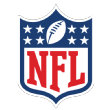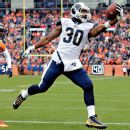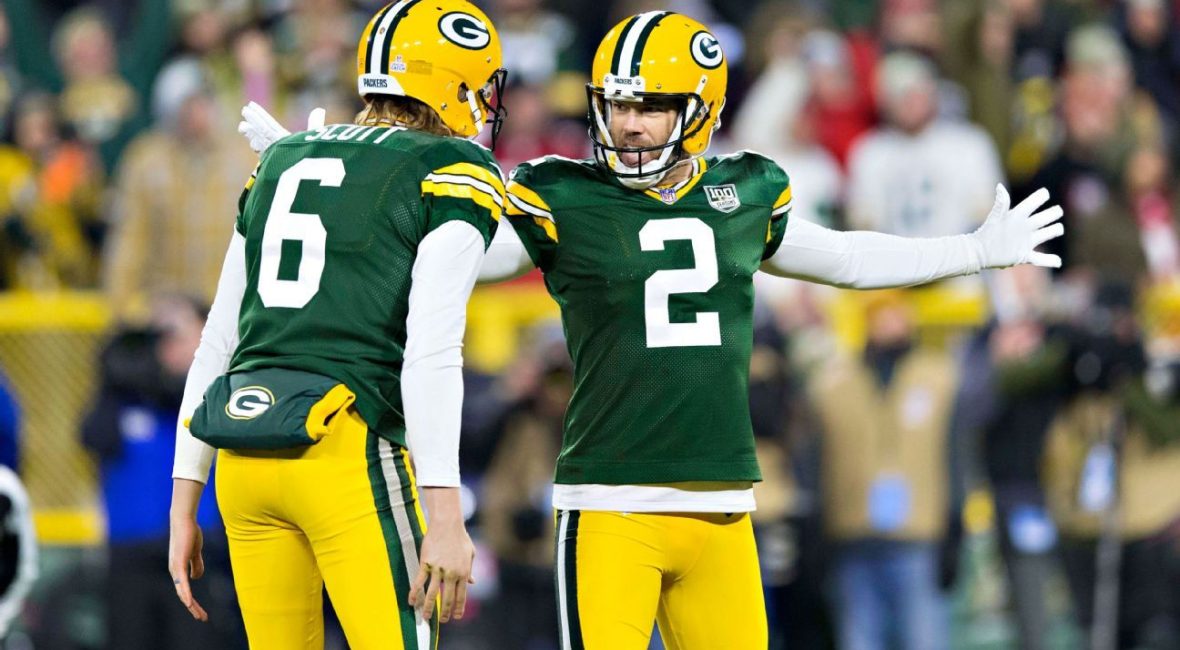NFL Nation reporters assess the biggest injuries across the league for Week 7.
Scan through all 32 teams by division, or click here to jump ahead to your favorite team:
AFC EAST

Bills rookie QB Josh Allen did not practice Wednesday and will not play Sunday against the Colts. Buffalo will start Derek Anderson instead. Allen, wearing a brace over his right elbow, said Wednesday that there was no timetable for his return but offered some context by mentioning next week (vs. the Patriots) or the week after (vs. the Bears) as possibilities. — Mike Rodak

Quarterback is no longer a question after Ryan Tannehill was ruled out this week, and Brock Osweiler will start. The Dolphins have some reinforcements coming on the defensive side of the ball with Cameron Wake (knee) and Bobby McCain (knee) returning to practice on a limited basis. Wake and McCain, two key starters, missed the past two games but have a good chance of playing Sunday vs. Detroit. — Cameron Wolfe
2 Related

Starting right tackle Marcus Cannon was knocked out of Sunday’s win over the Chiefs because of a concussion, which puts his availability in doubt against the Bears. That would thrust LaAdrian Waddle into the starting lineup in what would immediately become one of the top storylines of the game: Can the Patriots protect against Khalil Mack & Co.? Cannon has been in and out of the lineup the past two seasons, and Waddle has proven to be a capable replacement. — Mike Reiss

The Jets are beat up, especially at wide receiver and in the secondary. They probably will be without three of their top five DBs against the Vikings — S Marcus Maye, CB Trumaine Johnson and nickelback Buster Skrine. Rookie Parry Nickerson would replace Skrine in the slot, meaning his assignment will be WR Adam Thielan. The Jets also could be without two of their top four WRs, Quincy Enunwa and Terrelle Pryor. Also, Robby Anderson is nursing a hamstring injury. — Rich Cimini
AFC NORTH

Starting left guard Alex Lewis has a pinched nerve in his neck and didn’t practice Wednesday. The Ravens haven’t officially ruled him out for Sunday’s game against the Saints. “That can heal like that,” coach John Harbaugh said while snapping his finger, “or it could take a little bit of time.” If Lewis is sidelined, Baltimore could opt to move James Hurst from right tackle to left guard and start rookie third-round pick Orlando Brown Jr. at right tackle. Lewis and cornerback Brandon Carr (knee) are the only injured players to sit out Wednesday’s practice. — Jamison Hensley

Linebacker Nick Vigil is out for at least a month, so the main questions on defense revolve around Shawn Williams (concussion) and Darqueze Dennard (sternoclavicular). Denard didn’t practice on Wednesday with his shoulder still in a sling, so its likely the next man up at slot corner is Tony McRae or Darius Phillips. Clayton Fejedelem will sub in for Williams if he can’t go, and Vigil’s replacement is either veteran Vincent Rey or Jordan Evans. — Katherine Terrell
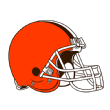
The Browns will be without their leading tackler on Sunday, as linebacker Joe Schobert is out because of a hamstring pull. Christian Kirksey moves from weakside to the middle, with Genard Avery taking over primary duties outside, though that could change depending on situations. Schobert will be missed for more than his play. He calls defensive signals, and is very adept at recognizing formations for calls. — Pat McManamon

The bye week gives the already healthy Steelers the chance to rest up. Safety Morgan Burnett (groin) says he’s frustrated to miss four games but is taking the rehab process day by day. Linebacker L.J. Fort (ankle) expects to play Week 8 against Cleveland. — Jeremy Fowler
AFC SOUTH

Deshaun Watson said Wednesday that he feels better than he did a week ago while dealing with a chest injury. “I’m cleared to practice,” Watson said. “I’m cleared to do everything. So I’m good.” Watson said he didn’t play with any extra padding Sunday against the Bills and that his injury didn’t affect much of his game other than playing “a little conservative as far as running the ball.” When the Texans quarterback was asked whether he felt he’d be healthy enough to play Sunday in Jacksonville, Watson said, “I’m great.” — Sarah Barshop

Receiver Ryan Grant did not practice Wednesday after leaving Sunday’s loss at the Jets early because of an ankle sprain. Grant has been the most reliable receiver not named T.Y. Hilton on the roster this season, with 26 receptions on 37 targets to go with a touchdown. Not all was bad for the Colts on Wednesday, as Hilton practiced for the first time since injuring his hamstring in Week 4. — Mike Wells
![]()
Catch up on what’s happening coming out of Week 6:
• The most unpredictable trends, moments from Week 6 »
• Who’s next? The heirs apparent to the Patriots’ AFC throne
• Let’s overreact to Week 6: Cowboys poised to take NFC East? »
• AFC on notice: Chargers are legit threats
• Week 6 takeaways: Can anyone stop the Rams?
• The biggest injuries of Week 6 »
More NFL coverage »

Leonard Fournette did not practice Wednesday and it’s unlikely he will play against Houston, which means it’s the T.J. Yeldon show again — but he didn’t practice Wednesday either because of an ankle/foot injury. That was probably more precautionary than anything because it’s important for Yeldon to be as healthy as possible since he’ll get the bulk of the work again even though Jamaal Charles’ playing time is expected to increase from the 17 snaps he played last week. — Michael DiRocco
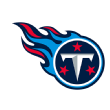
Starting inside linebacker Wesley Woodyard missed two games after injuring his shoulder against the Eagles in Week 4. Woodyard was limited in practice all of last week but said he felt he was close to being able to play soon. The Titans’ run defense suffered without Woodyard, which is why Mike Vrabel is hopeful to have him back against Melvin Gordon and the Chargers this week. — Turron Davenport
AFC WEST

The Broncos have been forced to adjust in the offensive line, and players who started the season as backups will have to be up to the challenge of playing far more. Right tackle Jared Veldheer has missed the past two games because of a knee injury and is not expected to play Thursday night against Arizona. That has put backup Billy Turner in the lineup there. Left guard Ronald Leary also suffered a season-ending Achilles tendon injury in the loss to the Rams this past Sunday, and that will put Max Garcia in that spot against the Cardinals. Garcia and Connor McGovern, who will start at right guard Thursday night, had alternated at right guard against the Rams — until Leary was injured — because the Broncos were trying to repair some struggles against the Jets’ interior rushers the week before. It probably will force the Broncos into far more two-tight end, two-back sets as they try to keep quarterback Case Keenum out of harm’s way. — Jeff Legwold
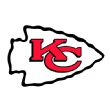
The wait for the Chiefs’ two biggest defensive stars, safety Eric Berry and linebacker Justin Houston, appears destined to last another week. Neither one practiced Wednesday as the Chiefs began preparations for the Bengals. The Chiefs are trying to get by without the two, but that’s difficult judging by the results last week in New England, the first time they played a full game without both players. — Adam Teicher

For a second straight week, the Chargers could be using recently signed kicker Mike Badgley as Caleb Sturgis works his way back from a strained right quad. Sturgis was a limited participant Wednesday. Chargers head coach Anthony Lynn said whether Sturgis plays could be a game-time decision again on Sunday. Badgley made a 44-yard field goal and all five of his extra point attempts in his first action for the Chargers against the Browns last week. — Eric D. Williams
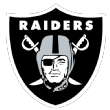
The bye week comes at a good time for a handful of key players, as receivers Amari Cooper and Seth Roberts suffered concussions against the Seahawks, and guard Kelechi Osemele (knee), running back Marshawn Lynch (groin) and safety Karl Joseph (hamstring) are dinged up as well. — Paul Gutierrez
NFC EAST

Linebacker Sean Lee was limited in his first practice since suffering a hamstring injury against Seattle on Sept. 23. The Cowboys have their bye week after Sunday’s game at Washington, but if Lee is healthy enough to play, he will, according to Jason Garrett. The Cowboys have not missed Lee as much as they have in the past, with Jaylon Smith and Leighton Vander Esch performing well in his absence. With Lee’s return, the Cowboys will have a good “problem,” and work out a rotation between the three of them like they had before Lee was hurt. Defensive end DeMarcus Lawrence did not work a full practice, as he is working through a shoulder injury that limited his work to mostly passing situations last week and could continue to do the same this week. — Todd Archer

It looks as if tight end Evan Engram will return Monday night against the Falcons. Engram has missed three games because of a sprained MCL, but he was moving well at practice Tuesday and expected to play this week. This should open up the middle of the field a little bit for the struggling Giants offense. — Jordan Raanan
![]()
• Sean McVay’s quest for playcalling perfection
• What’s next in Le’Veon Bell saga?
• Brady-Gronk: Crunch time connection
• Von Miller makes a big guarantees
• Things could be different after Packers’ bye

Both offensive tackles are hobbled but will push to suit up against the Panthers. Left tackle Jason Peters is going to play through a reported torn biceps, and Lane Johnson, who missed Wednesday’s practice, is trying to gut through a high ankle sprain. Slot corner Sidney Jones (hamstring) is likely to miss some time, and the secondary is already without S Rodney McLeod. It will be a patchwork group Sunday, with rookie Avonte Maddox a candidate to move into the nickel role for Jones. — Tim McManus

The Redskins, as usual, have key players banged up. Receiver Jamison Crowder is already unlikely to play because of an ankle injury. So the key focus will be on the offensive backfield, where Chris Thompson (ribs/knee) and Adrian Peterson (ankle/knee/shoulder) are hurting. Peterson did not practice Wednesday, but he played through quite a bit of pain last week. Thompson felt better Wednesday and is more optimistic about playing Sunday than he was at any point a week ago. But it still remains uncertain. — John Keim
NFC NORTH

Bears head coach Matt Nagy told reporters Wednesday that he planned to play it safe with star pass rusher Khalil Mack, who suffered a right ankle injury in last week’s overtime loss to Miami. “He’s day-to-day right now,” Nagy said of Mack. “We’re just going to continue to keep an eye on it and make sure whatever we do, we’re more cautious than anything. I believe in that and I think it’s important to go that route.” The Bears are still hopeful that Mack will play against the Patriots on Sunday. — Jeff Dickerson
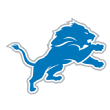
The Lions received positive news Wednesday when T.J. Lang returned to practice on a limited basis after missing two weeks because of a concussion. Coming off its bye, Detroit looks fairly healthy (Ezekiel Ansah, Kerryon Johnson and Michael Roberts practiced, too). The biggest level of concern is going to be running back Theo Riddick, who surprisingly sat out Wednesday’s practice because of a knee injury. His status would be something to watch — and if he were somehow unable to go, then Ameer Abdullah could see an uptick in his workload, which is currently minimal. — Michael Rothstein
2 Related

Randall Cobb and Geronimo Allison were close to returning last week. With their bye this week, there’s a good chance the Packers could have both receivers back from their hamstring injuries for what will be the start of their most difficult stretch of the season — at the Rams, at the Patriots, home against the Dolphins, at the Seahawks (on a short week) and at the Vikings. — Rob Demovsky

What kept Linval Joseph out of practice Wednesday is described as an ankle, knee and shoulder injury, further pointing to why Minnesota re-signed David Parry this week for depth at nose tackle. Mike Zimmer made it sound as if Riley Reiff’s foot injury isn’t a long-term concern, but the left tackle missed his fourth straight practice along with Andrew Sendejo (groin) and Everson Griffen (not football related). The good news? After being a late scratch against Arizona, Dalvin Cook (hamstring) returned to practice in full, as did Tashawn Bower (ankle), who was also sidelined in Week 6. — Courtney Cronin
NFC SOUTH
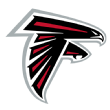
Defensive tackle Grady Jarrett’s status remains somewhat of a mystery coming off an ankle injury that has sidelined him the past two games. Coach Dan Quinn continues to sound optimistic about Jarrett’s possible return, but it probably won’t be certain until Jarrett comes off the injury report. The Falcons sure could use him in the middle up front, with Giants rookie Saquon Barkley sure to challenge the entire defense Monday night. — Vaughn McClure

Pro Bowl tight end Greg Olsen was listed as a limited participant in practice after his return Sunday from refracturing his right foot. But no need to hit the panic button. Coach Ron Rivera calls that the new norm for Olsen, who will get as much rest on possible during the week so as not to stress the foot. Production-wise, Olsen got off to a good start in his first game back with four catches on seven targets for 48 yards. — David Newton

Top cornerback Marshon Lattimore practiced fully Wednesday, which is a great sign that he is on track to return from his Week 5 concussion (though he is still awaiting official clearance through the NFL’s concussion protocol). On the flip side, WR Ted Ginn Jr. missed practice Wednesday because of the knee injury that also sidelined him in Week 5. That’s not a great sign for Ginn coming off of the bye week, but we’ll learn more about his potential availability on Thursday and Friday. If Ginn can’t play Sunday at Baltimore, that should obviously mean bigger roles for Tre’Quan Smith and Cameron Meredith again after they both stepped up in Ginn’s absence two weeks ago. — Mike Triplett
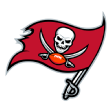
Six-time Pro Bowl defensive tackle Gerald McCoy left last week’s game against the Falcons because of a calf injury and subsequently missed Wednesday’s practice. Defensive end Vinny Curry, who has become one of their best run stoppers up front, also missed Wednesday’s practice because of an ankle injury. Cornerback Carlton Davis, who has been dealing with a groin injury, now has a back injury too. On a positive note, cornerback Ryan Smith, who left the Falcons game to be evaluated for a concussion, is not in the protocol. — Jenna Laine
NFC WEST
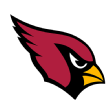
Right guard Justin Pugh is questionable for Thursday night’s game against the Broncos because of a broken left hand. He said Wednesday his status for the game would be determined by pain tolerance more than anything. He’ll have it wrapped and hopefully be able to have his fingers free to use against defenders, but the swelling in the hand has gone down significantly from Sunday, when he injured it. — Josh Weinfuss

Receiver Cooper Kupp suffered a knee sprain against the Broncos that will sideline him against the 49ers. Josh Reynolds has proved to be a capable backup and is expected to start in Kupp’s absence. Kicker Greg Zuerlein, who has been sidelined since he suffered a groin injury in pregame warm-ups in Week 2, is expected to return, which should provide the Rams a reliable safety net for points inside opposing territory. — Lindsey Thiry

The 49ers are again facing multiple injuries, but the cornerback position is the most up in the air this week, which isn’t exactly good timing with the high-powered Rams coming to town. Cornerbacks Jimmie Ward (hamstring), K’Waun Williams (shoulder) and Ahkello Witherspoon (concussion) are considered day-to-day this week. The Niners are hopeful they will have at least some of them back, but either way the team probably will enter Sunday’s matchup with concerns at the position. — Nick Wagoner

The Seahawks head into their bye in good shape health-wise after making it out of their past two games without any significant injuries. Furthermore, reinforcements are on the way. Linebacker K.J. Wright and tight end Ed Dickson probably will practice next week, according to Pete Carroll, and will have a chance to make their 2018 debuts on Oct. 28 at Detroit. Carroll sounded confident that Dickson would be available for that game but stopped short of saying definitively that either would play. He said Wright “has had a couple really good days” in his recovery from a late-August knee score and that “he’ll practice with us and complete to to play next week when we return.” — Brady Henderson
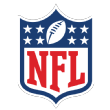 Everything you need this week:
Everything you need this week:

